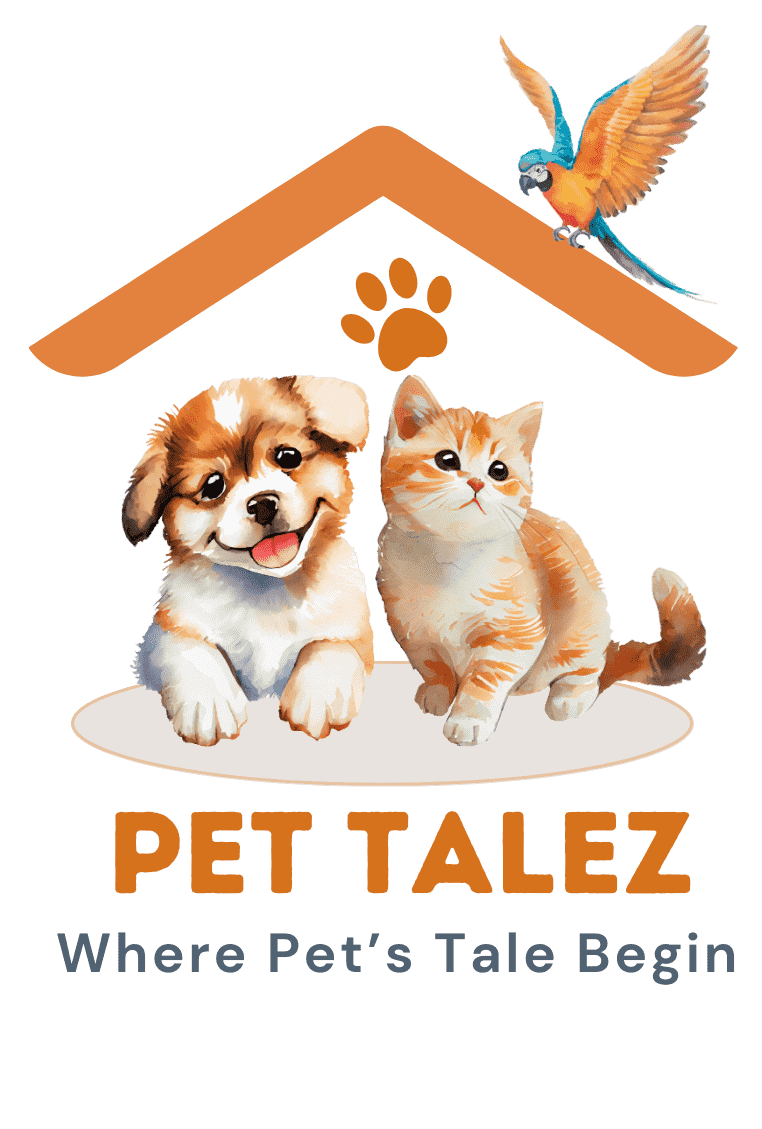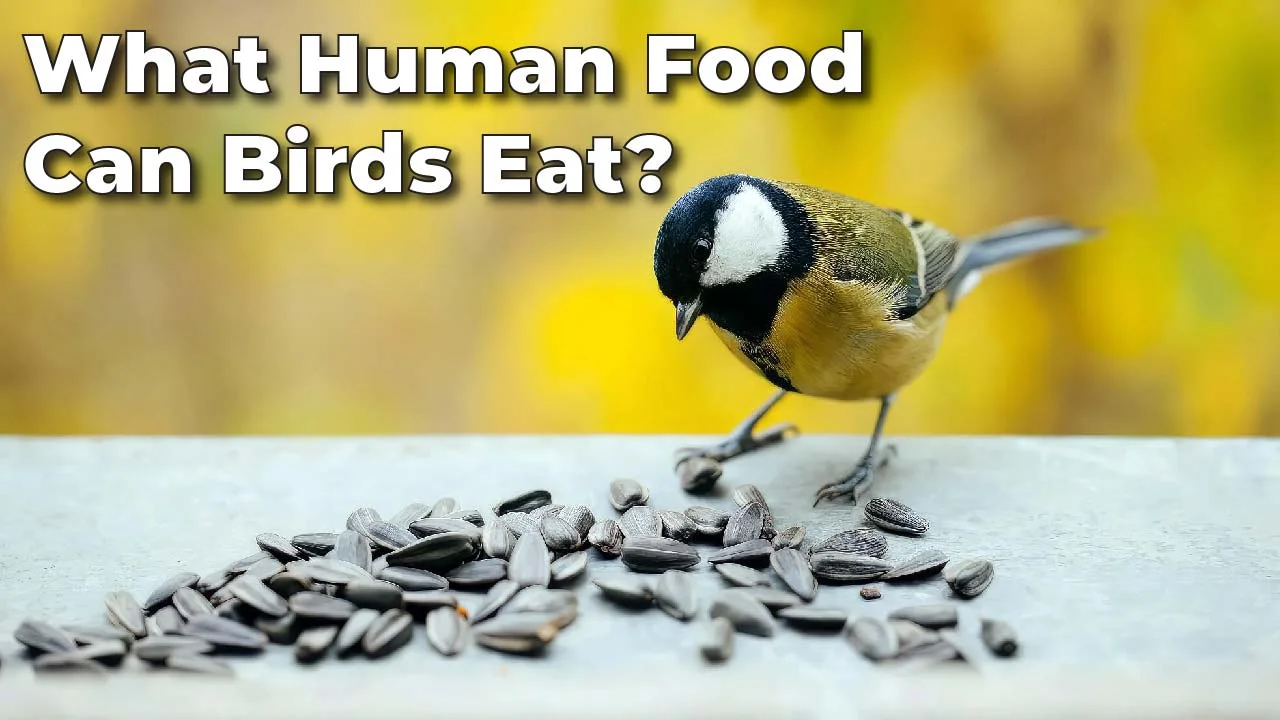Birds are amazing animals that make a lot of people happy. Whether you have a pet bird or enjoy watching wild birds in your backyard, you might be curious about what human foods are safe to share with them. Knowing what human food birds can eat is essential for their health and well-being.
Understanding Birds’ Digestive System
Birds have a particular tummy that helps them eat lots of different foods. They have two parts in their tummy. One part holds the food, and the other part digests it. This helps birds get all the good stuff from fruits, veggies, seeds, and bugs.
Safe Human Foods for Birds
When it comes to feeding human food to birds, there are several safe options to consider:
Fruits:
-
Variety: Birds like different fruits, like apples, bananas, berries (strawberries, blueberries, and raspberries), and melons (like watermelon and cantaloupe).
-
Nutritional Value: Fruits give birds important stuff like vitamins and minerals. They help birds stay solid and healthy and keep them from getting sick.
-
Hydration: Many fruits have high water content, helping to keep birds hydrated, especially during hot weather.
-
Feeding Methods: Offer fruits in small, bite-sized pieces or slices to make them easier for birds to consume.
Vegetables:
-
Nutrient Density: Carrots, broccoli, spinach, and peas have lots of good stuff, like vitamins and minerals. They help us stay healthy and strong.
-
Fibre: Vegetables have fibre, which keeps birds’ tummies healthy and stops them from getting constipated.
-
Chopping: Chop vegetables into small, manageable pieces to prevent choking and make them more accessible for birds to eat.
-
Variety: Offer a variety of vegetables to ensure birds receive a balanced diet and enjoy different flavours and textures.
Grains and Seeds:
-
Energy Source: Birds get lots of energy from rice, oats, quinoa, sunflower, and pumpkin seeds. These foods are full of stuff like carbs, fats, and proteins. They help birds stay strong and active for a long time.
-
Fibre Content: Grains and seeds also contain fibre, which aids digestion and helps regulate blood sugar levels in birds.
-
Sprouting: Sprouted grains and seeds are healthy and easy for birds to eat. They’re an excellent choice for feeding pet birds.
-
Portion Control: Offer grains and seeds in moderation to prevent overconsumption and ensure a balanced diet for birds.
Protein Sources:
-
Muscle Development: Birds need protein to grow muscles and fix them. They should eat eggs, chicken, beans, lentils, and chickpeas to get protein.
-
Amino Acids: Eggs and meats provide all the essential amino acids that birds need for optimal health and vitality.
-
Digestibility: Birds can easily digest cooked eggs and meats. This facilitates their body’s repair and energy utilization of the protein.
-
Variety: Offer a variety of protein sources to prevent dietary boredom and ensure that birds receive a diverse range of nutrients.
Unsafe Human Foods for Birds
While many human foods are safe for birds, some should be avoided entirely:
Foods High in Salt and Sugar:
-
Health Risks: Foods high in salt and sugar, such as chips, cookies, and processed snacks, can pose significant health risks to birds.
-
Obesity: These foods can make birds too fat, which can cause health problems like heart disease, diabetes, and sore joints.
-
Empty Calories: Salt and sugar-laden foods offer little to no nutritional value for birds and can lead to imbalances in their diet.
Avocado:
-
Toxin: Avocado has something called persin. It’s unsuitable for birds and can hurt their tummy, breathing, and heart.
-
All Parts Are Toxic: All parts of the avocado plant, including the fruit, seed, and leaves, contain persin and should be avoided in a bird’s diet.
Chocolate:
-
Theobromine Toxicity: Chocolate has something called theobromine. It’s bad for birds and can kill them if they overeat.
-
Symptoms of Toxicity: Eating chocolate can make birds sick. They might throw up, have runny poop, breathe fast, or even have seizures and die.
Caffeine:
-
Nervous System Stimulation: Coffee and tea have caffeine that can make birds too excited. They might shake, have a fast heartbeat, or even stop their heart.
-
Toxicity Levels: Birds are susceptible to caffeine; even small amounts can severely affect their health.
Alcohol:
-
Toxicity: Alcohol is highly toxic to birds and should never be given to them under any circumstances.
-
Immediate Effects: Drinking alcohol can make birds feel sick. They might have trouble breathing, feel confused, or even die.
Ensure birds can’t get too bad foods and drinks to keep them healthy. Give them good foods that help them stay strong and happy.
How to Offer Human Food to Birds: Essential Bird Feeding Tips
When offering human food to birds, it’s essential to do so safely:
Wash Thoroughly:
-
Before offering fruits and vegetables to your bird, wash them thoroughly under running water.
-
This helps remove any pesticides, dirt, or contaminants that may be present on the surface of the food.
-
Cleaning fruits and veggies keeps your bird safe from things that might make it sick.
Cut into Bite-Sized Pieces:
-
Cutting big food pieces into small ones for your bird is essential. This helps keep it from choking.
-
Birds have tiny beaks and may have difficulty swallowing large chunks of food.
-
Cutting food into tiny pieces helps birds eat safely. It stops them from choking or having food stuck in their throat.
Offer a Variety:
-
A diversified diet is crucial to guarantee that your bird gets all the nutrients it needs for optimum health.
-
Give your bird different fruits, veggies, grains, seeds, and protein to keep it healthy.
-
Rotate the types of food you offer regularly to keep your bird interested and engaged in its diet.
Monitor Reactions:
-
Consider your bird’s reaction when introducing new foods into its diet.
-
Some birds may hesitate to try new foods, so be patient and persistent.
-
Watch your bird for signs of allergies, tummy troubles, or not liking some foods.
-
If your bird doesn’t feel good after eating something, immediately remove it. Ask a vet if you need help.
You can give your bird people food if you follow these rules. This will help keep your bird healthy and happy.
Benefits of Offering Human Food to Birds
Providing human food to birds can have several benefits:
Nutritional Benefits:
-
People’s food has essential vitamins and minerals that can help birds stay healthy when they eat it.
-
Birds can eat fruits, vegetables, grains, seeds, and protein from human food. These give them extra nutrients they might not have in their usual birdseed.
-
These extra nutrients help birds stay healthy. They make their bodies strong and help them fight sickness. They also help birds grow pretty feathers and have babies.
Enrichment:
-
Offering a variety of human foods to birds provides them with mental stimulation and enrichment.
-
Birds like to explore new tastes, textures and smells because they are curious. This makes them excited and keeps them thinking.
-
Giving your bird new foods often stops them from getting bored and makes them look for food like they would in the wild. This keeps them feeling good in body and mind.
Bonding:
-
Sharing food with your bird can strengthen your bond and create positive associations with mealtime.
-
Birds are social creatures that thrive on interaction and attention from their human companions.
-
Giving treats or feeding your bird by hand helps you become better friends. It builds trust and makes you closer.
-
Eating together can make you and your bird closer. It helps your bird feel happy and healthy.
Giving birds human food has many good things, like giving them extra nutrition, making them think, and helping you bond with them. Providing your bird with safe and healthy human food helps their body, brains, and feelings, making them happier and healthier friends.
Recipes for Bird-Friendly Treats
If you’re looking for fun and easy ways to incorporate human food into your bird’s diet, try these simple recipes:
Fruit Kabobs:
-
This fun and yummy treat is simple, and full of vitamins and good stuff.
-
Thread small pieces of bird-safe fruits, such as apples, bananas, grapes, and berries, onto skewers.
-
You can get creative with the fruit combinations to give your bird various flavours and textures.
-
Fruit kabobs make a tasty snack and encourage natural foraging behaviours in your bird.
Veggie Mash:
-
A veggie mash is a great way to incorporate cooked vegetables into your bird’s diet in a fun and palatable way.
-
Start by steaming or boiling bird-safe vegetables like sweet potatoes, peas, carrots, and broccoli until soft.
-
Then, blend the cooked vegetables into a smooth mash using a food processor or blender.
-
You can adjust the consistency of the mash by adding a little water or vegetable broth if needed.
-
Give the veggie mash to your bird as a healthy side dish. Mix it with your bird’s usual food to make it even more nutritious.
Seed Cookies:
-
Seed cookies are a delicious and crunchy treat that your bird will love.
-
Mix safe bird seeds, like sunflower, pumpkin, and sesame seeds, with whole-grain flour in a bowl. This makes seed cookies.
-
Add a small amount of honey or mashed fruit to the mixture to bind it together.
-
Make little cookie shapes from the mixture. Place them on a parchment paper-lined baking sheet.
-
Bake the seed cookies in a preheated oven at a low temperature until they are golden brown and crispy.
-
Please wait for the cookies to cool down before giving them to your bird for a yummy and healthy treat.
These delicious homemade bird treats give your feathered friend essential nutrients and enrichment. When you make treats yourself, you can pick what goes in them. That way, you know they’re safe and suitable for your bird to eat.
Conclusion: What Human Food Can Birds Eat?
In conclusion, knowing what human food birds can eat is essential for their health and well-being. By offering a variety of safe foods in moderation, you can provide your feathered friends with a nutritious and enjoyable diet that promotes overall wellness.
FAQs
Q. Can birds eat bread?
A. While bread is not harmful to birds in small quantities, it should not be a significant part of their diet as it offers little nutritional value.
Q. Is it safe to feed birds nuts?
A. Certain nuts, like almonds and peanuts, can be moderately offered to birds. However, they should be unsalted and preferably shelled to prevent choking hazards.
Q. Can birds eat dairy products?
A. Most birds are lactose intolerant and should not consume dairy products like milk or cheese.
Q. What should I do if my bird eats something toxic?
A. If you suspect your bird has ingested something toxic, contact your veterinarian immediately for guidance.
Q. How can I encourage wild birds to eat human food in my backyard?
A. You can attract wild birds to your backyard by offering bird feeders filled with bird seeds, fruits, and nuts.

